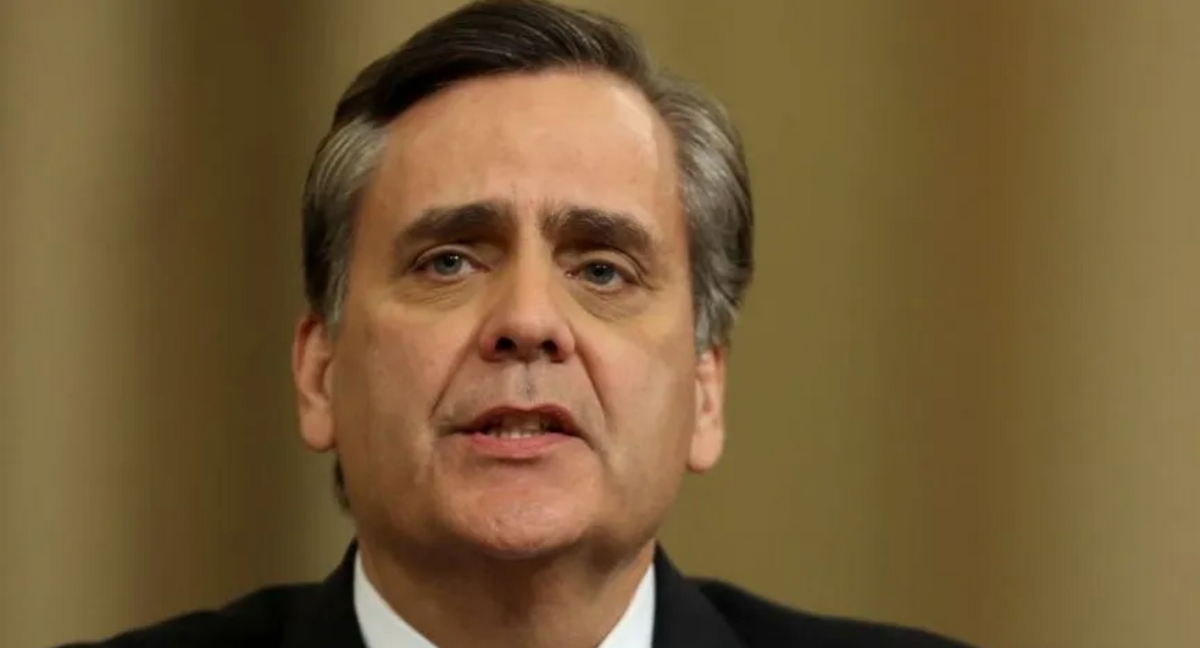breyer replacement
Top stories
Pro-Trump Lawyer Slammed for Claim That Biden's Pledge to Nominate Black Woman to SCOTUS Is Unconstitutional
Earlier this week, news broke that Supreme Court Justice Stephen Breyer plans to retire from the Supreme Court in six months at the most, prompting the revival of footage from the 2020 campaign trail, where then-candidate Joe Biden vowed to nominate the first Black woman to the Supreme Court.
In a joint press conference between President Biden and Justice Breyer, Biden reiterated that promise, saying once again that he will nominate one of the many qualified Black women jurists across the country to the nation's highest court.
Biden told reporters at the joint presser:
“While I've been studying candidates' backgrounds and writings, I've made no decision except one: The person I will nominate will be someone with extraordinary qualifications, character, experience, and integrity, and that person will be the first Black woman ever nominated to the United States Supreme Court.”
Conservatives predictably went ballistic, insisting that Biden was appointing a Justice based solely on race and gender, failing to acknowledge that only white men had been nominated to Supreme Court seats for nearly 200 years before Justice Thurgood Marshall was confirmed to the Court in 1967.
Enter Jonathan Turley, the pro-Trump lawyer whom you may remember as the one to testify in Trump's defense during House hearings for the former President's first impeachment. Or perhaps you remember him peddling conspiracy theories about the validity of the 2020 election. Then again, maybe you remember him balking at Biden's 2020 warning that Trump might seek to delay the presidential election, only to grasp at straws for a defense when Trump did just that.
Now, Turley has once again entered the chat, this time to suggest that Biden considering only Black women for this next Supreme Court pick is unconstitutional, citing Supreme Court rulings on education and private businesses.
Jen Psaki just reaffirmed that the President will only consider a black woman for the next nomination -- a threshold gender and race condition that the Court itself has found unconstitutional for schools and unlawful for private businesses. https://t.co/uzc5jInAlg
— Jonathan Turley (@JonathanTurley) January 26, 2022
But these pledges are nothing new. Ronald Reagan vowed ahead of the 1980 election that "one of the first" Supreme Court nominations he'd put forth would be a woman. Even more recently, when Justice Ruth Bader Ginsburg died in 2020, Trump boasted at a rally that he would nominate a woman to replace her.
Turley displayed impressive elasticity in his attempts to refute these arguments, claiming that both Reagan and Trump had men on their nominee shortlists and that only Biden said point-blank he would solely consider Black women.
The President of the United States, however, has the sole power to nominate Supreme Court Justices, and there are only nine in the entire nation at any given time. Employment protections are applied across an array of sectors with countless employers, whose effects are localized to a limited set of clients.
A Supreme Court ruling, on the other hand, directly impacts practically every American in the United States. For centuries, the Supreme Court has issued rulings— Plessy v. Ferguson, Brown v. Board of Education, Roe v. Wade, and soon, Dobbs v. Jackson Women's Health Organization, to name a few—that have directly affected Black women, yet not a single Black woman has ever signed off on any of these decrees.
People didn't buy Turley's argument.
Others also pointed out that there were decades and decades where race was a prohibitive factor in Supreme Court nominations.
Apparently it's beyond comprehension for some that committing to nominate a Black woman for the Supreme Court isn't mutually exclusive from nominating the best person for the job.
 SECONDNEXUS
SECONDNEXUS percolately
percolately georgetakei
georgetakei comicsands
comicsands George's Reads
George's Reads





